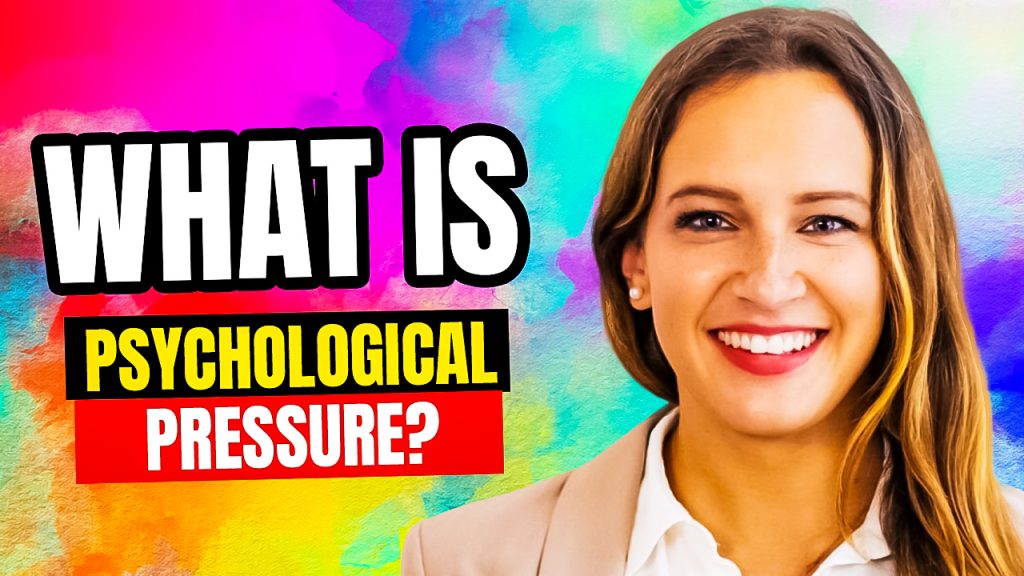
Psychological pressure, also known as mental or emotional pressure, refers to the force exerted on an individual’s mental and emotional state that can impact their ability to cope with challenges, perform at their best, and maintain emotional stability. This pressure can originate from a variety of sources, such as work, school, personal relationships, or internal factors like perfectionism and self-doubt.
Psychological pressure can manifest in different ways, including anxiety, stress, tension, and overwhelm. It can also lead to physical symptoms such as headaches, stomach aches, and fatigue. When individuals experience prolonged or intense psychological pressure, it can negatively affect their mental health and well-being, leading to depression, burnout, or even suicidal thoughts.
One of the primary sources of psychological pressure is work-related stress. Work stress arises when individuals feel overwhelmed, overworked, or unsupported in their job. This stress can stem from unrealistic expectations, unreasonable deadlines, excessive workload, or inadequate training and support. Work stress can also result from workplace bullying, harassment, or discrimination.
School-related stress is another significant source of psychological pressure, particularly among students. Academic pressure arises when students feel overwhelmed by the demands of academic work, such as coursework, assignments, and exams. This stress can also be compounded by external factors like peer pressure, parental expectations, and societal pressure to perform well academically.
Personal relationships can also contribute to psychological pressure. Relationship stress can arise when individuals experience conflict, breakups, or divorce. Social pressure, such as the pressure to conform to social norms or expectations, can also affect individuals’ mental and emotional well-being.
Internal factors like perfectionism and self-doubt can also contribute to psychological pressure. Perfectionism is the tendency to set impossibly high standards for oneself and obsess over every detail. This can lead to a constant sense of not measuring up, even when objectively, individuals have achieved a great deal. Self-doubt, on the other hand, is the feeling of not being good enough or capable enough. This can arise from past experiences of failure or criticism and can lead to persistent feelings of inadequacy.
While psychological pressure can have negative consequences, some degree of pressure can be beneficial. For example, moderate pressure can motivate individuals to perform better and achieve their goals. This is known as “optimal pressure.” Optimal pressure can enhance focus, attention, and motivation, leading to improved performance.
However, when pressure becomes excessive or chronic, it can have detrimental effects on individuals’ mental and physical health. It can lead to symptoms like anxiety, depression, and chronic fatigue. Chronic pressure can also lead to burnout, a state of physical and emotional exhaustion resulting from prolonged stress and overwork.
Managing psychological pressure is crucial for maintaining mental and emotional well-being. One effective approach to managing pressure is developing coping strategies that help individuals manage stressors effectively. Coping strategies can include techniques like mindfulness, relaxation, exercise, and talking to a trusted friend or therapist.
Another strategy for managing psychological pressure is setting realistic expectations for oneself. This can involve recognizing and accepting one’s limitations and learning to say no when necessary. It can also involve prioritizing self-care and setting aside time for rest and relaxation.
Seeking support from others can also be helpful in managing psychological pressure. This can include seeking guidance and support from a therapist or counselor or talking to friends and family about one’s challenges and struggles.
In conclusion, psychological pressure refers to the force exerted on an individual’s mental and emotional state that can impact their ability to cope with challenges, perform at their best, and maintain emotional stability. This pressure can originate from a variety of sources, including work, school, personal relationships, and internal factors like perfectionism and self-doubt. While some degree of pressure can be beneficial, excessive or chronic pressure can
exert a negative toll on an individual’s mental and physical health.
Therefore, it is essential to manage psychological pressure effectively.
This Post is Brought To You By BetterHelp